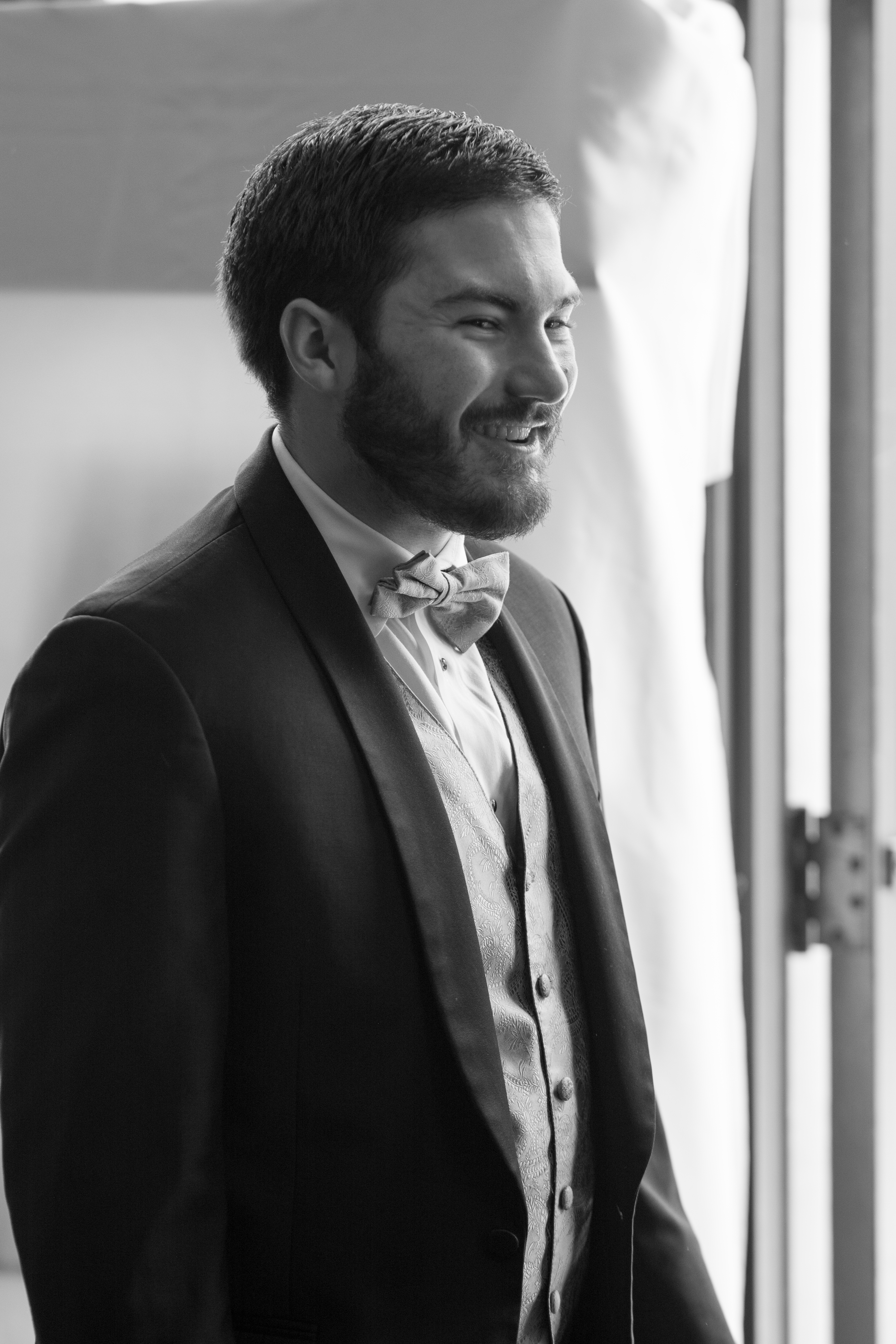A Different Type of Entrepreneur

Noah Parisi
January 27, 2025

With the ferment of entrepreneurship, I see a growing moral system that asserts itself in social discourse. If I scroll through my social media feed, I see countless iterations of the exact same messages:
-10x your output consistently and you’ll see results
-You don’t have to outsmart your opponents, just outwork them and outwait them
-Don’t overthink things, just act
-Keep your focus on just one thing for longer than anyone else and you’ll be the best
-You have to sacrifice a lot in order to win a lot. Sacrifice more than the next guy
-Don’t give a sh*t about motivation, just devote yourself to strenuous work
Nevertheless, I do have a few pretensions about the particular grindset that I see becoming more and more popular. Nearly every day I see a social media influencer who has gained their hundred thousand followers. The sad thing, however, is that the majority of these influencers gained their followers by telling other people how to gain followers. I’m not necessarily criticizing the individuals who do so–– there is a genuine need for such content.
The issue is that it has become a very saturated market. One is able to make an entire living from start to finish only by telling other people how to make a living. And when you have a circle of morality in which everyone is putting their chips down on the same hand, the cards are going to fall and someone’s going to take away all the cash. When everyone rushes to Wall Street for the growing bubble you can rest assured people will soon be running away as soon as the bubble bursts.
The growing entrepreneurial sphere is a net good to society. It’s helping a lot of people both young and old get their affairs in order. But there’s a rub here. The influencer, the businessmen, the productivity gurus of our day tell men that they need to be aiming at the top 1%. But the stark reality is that only 1% can be part of the 1%. The success of the few is eminently dependent upon the ordinariness of the many. If everyone sacrifices their personal lives at the foot of ambition’s altar, we will only have an enisled population, a world of grifters trying to sell their wares to any random passerby.
My critique of this movement is not that it won’t help people. It will. My critique is that it is impossible for a society to be based on it. Like the old Stoic philosophy, it makes the individual stern, powerful, indestructible, and competent. It puts steel in the spine and earth under the feet. But it also creates a countryside of lonely and isolated mountaintops, separated by large valleys of fog. If one wants to have the mountaintops of excellence, they need to understand that the mountains are only mountains because of the surrounding countryside. Without the valley of the ordinary, you cannot have the mountain of success.
What Do I Propose?
My fundamental contention in this essay is that there are two distinct types of entrepreneurs and to argue that both are necessary to society. Psychological literature has shown that two character traits tend to predict entrepreneurial success. On the one hand you have conscientiousness. Conscientiousness is the ability to work hard. It is correlated with high moral standards along with a capacity for self discipline. It is further subdivided into two subfactors: Industriousness and Orderliness.
Conscientiousness enables someone to work and labor for a long period of time. One study showed that entrepreneurs with higher levels of conscientiousness stayed at their companies longer and were less likely to exit. It gives an individual a propensity to say no to their desires, to put oneself to the grind, and instill a high degree of order in their work environment.
It is largely what is commended by the voices I spoke about earlier. In most entrepreneurial circles, people say that hard work is able to cure every ill. The reason you haven’t seen the results is that you haven’t done the reps. A few hundred more repetitions, a thousand more iterations, and you will have what you wanted.
But the quality that I see as neglected or even sometimes discouraged is Openness to Experience. Openness is the capacity for abstract thought and the ability to entertain ideas outside of one’s own perceptual scheme. It allows one to change their frame of reference and allow different viewpoints. It tends to creativity, to a love for the poetic and the aesthetic. Like Conscientiousness, it is also divided into two subtypes: Intellect, and Aestheticism.
One paper analyzed these two personality traits and found that Conscientious entrepreneurs were more risk averse. Open entrepreneurs were more willing to engage in higher risk opportunities. In that same paper, Open entrepreneurs were also shown to have a higher proclivity to work on R&D projects designed to drive technologies or knowledge further.
An Argument for Openness
The idea of an Open entrepreneur is needed to counterbalance the current milieu. I think the current atmosphere surrounding personal success could be summated in the following words: “If you hustle long enough and hard enough, you will succeed.” But the fact is that someone can keep their hustle going for years and years without seeing any progress if they are going in the wrong direction. No matter how hard you work, it will be in vain if you are working on the wrong thing or in the wrong way.
You have two main ways in which you can attract revenue: One is by working hard enough on something so that it becomes top notch. The other is by having a sudden burst of innovation and creating a product that is intrinsically different from anything that people have seen before.
Conscientiousness tends towards the first and Openness toward the second. Conscientiousness keeps a person on track when they are on the right path. Openness allows a person to streamline their path, to see errors in their bias, and to look for truly inventive paths.
One of the main points that I see iterated is that success comes from devotion to a process rather than a goal. In other words, it does not matter if you have a vision to fulfill. Your focus should be on executing your work faithfully and excellently without fail. Your emotions and your motivation don’t matter. What you need to do is put yourself to the grind everyday, whatever is going on inside your heart. You need to aim not for any goal but for proper execution.
That creates a certain type of success. It will bring in revenue by the millions or even the billions. But (and I could be wrong about this) it will not create societal dynamism. It will not bring about revolutionary and innovative change. The idea that hard work and a bias towards action can solve anything only works if a person is operating in a certain condition: what they are trying to do has been done before. It does not make the mark, however, if someone is trying to do something that has never been done.
What Is A Business?
To make this point more clear, I want to drive home what I believe the point of the entrepreneurial sector is in society at large. At any given time, a country carries on its life in a certain way, driven by certain technologies and built on the soil of certain resources. At any given time, a society must decide what it must spend its resources and its labor upon. In the lack or scarcity of either people or resources, some things must be prized above others. In a time when invaders are at the doorstep, the whole countryside becomes a throbbing organism with all its nutrients and energy devoted solely unto defense. In times of tranquility, funds may be directed to various enterprises. It may be towards increased production or cultural efflorescence.
At any given time, then, society is faced with a question: what investment will procure the greatest good for society with the longest-term benefits in mind? In other words, what in this culture do I want to be preserved for my grandchildren and great-grandchildren. Money becomes the quantifiable measure for this value. In this scheme, the entrepreneur stands as a man who is able to read the times. He understands the passions of the people, what their greatest longing is, what is their most dreaded fear, and he forges a path for the body politic, saying “This is the way we can go.”
The entrepreneur is not merely a man who provides service, he manifests a path into the future, a path which lesser men could never have dreamed, but which they could not abandon once it has been revealed. Because he understands the wants of the populace, he produces a product, a service, or a movement that cures the fears of a nation and brings to fruition all of their most secret dreams. To use the etymology of the word entrepreneur, he is the man who grasps after the future and pulls it into the present.
What is the consequence? Capital flows to him in the great economic plebiscite. The people see him as a man whose vision for the future is one that is stable and fecund, his product as something which will revitalize their lives and their futures. And so with their pocketbook they cast their vote: I want more of this in the world.
The Spectre of Behaviorism
Most business advice today does not view people or capital in this way. Rather, people are like machines that can be easily programmed and easily persuaded into doing what one wants them to do. That is mostly because of the prevalence of behaviorism. Near the beginning of the twentieth century, B.F. Skinner became one of the leading lights in the psychological realm. He argued that man along with every other animal, could be reduced solely to the contingent effects which condition his environment and consequently himself. In this conceptualization, a man was solely the product of his environment, and if one could change the environment, they could change the man. He summated it well at the end of his book, On Freedom and Dignity: “A purely scientific view of man offers exciting possibilities. We have not yet seen what man can make of man.”
On the behaviorist scheme, man is perfectly plastic. Every facet of his character may be altered through conditioning. And this conception permeates much of the sphere of business. Alex Hormozi, whose following daily grows, regularly quotes Skinner. The result is that much advice rests upon the assumption that a person is infinitely malleable, that any skill can be inculcated by an intentional use of operant conditioning. The entrepreneur becomes a man deprived of a will, a machine that can be programmed and can program others, an amoral man who is guided not by what is right or what is wrong but by what is expedient and what is operable.
Perhaps Skinner’s greatest critic was Jaak Panksepp. In his work Affective Neuroscience, Panksepp laid out a neurobiological argument against the tenets of Behaviorism. He explored the fixed nature of emotional disposition in animals. One of the most colorful examples he gives is about raccoons that were taught to put pennies in a box. They were taught through Pavlovian conditioning to do so. Every time they put a penny in the box, they were given a treat. This wired them to repeat the task over and over.
After a time however, the cycles of conditioned behavior, the things we laud today as ‘habits’, gave way to the inexorable force of their biology. After a brief stint returning the pennies, the raccoons would eventually treat them like little morsels of food, rubbing them together in their paws. The reason for this is that the more primordial urges, the unconditioned subtrata of behavior, had a stronger pull than the conditioned urges. The raccoons knew that it was good for them to put the pennies in the box. But they didn’t want to in the deepest sense. It simply was not natural for them to do so. Panksepp illustrated this brilliantly in a challenge he proffered to his students:
In the early years of my career, I made an open challenge to my department’s graduate students in psychobiology to train a hungry rat to run down an alleyway backward to obtain food. I assumed that this would be very unlikely, since nature had designed a SEEKING system in the brain so that rats would always forage for food with their nose instead of their butts. Many students, still believing the behaviorist gospel and not believing the evolutionary constraints on learning that were being noted in the literature, thought my challenge might be easy to master. Many tried, but none succeeded.
Most entrepreneurial thought today centers on the axiom that the individual can be trained to perform any task. The undergirding biology, however, whispers a different story. Our motivational patterns are not in the final analysis up to our decision. There is a pattern inscribed into the structure of our cognition and a set pattern for motivation. If we try to terraform the landscape of motivation, it ends with the ground caving beneath our feet. An outward apparatus can be constructed in the absence of true motivation, and this is what is attempted by the systemizers and habituators, but eventually the scaffolding will fall at the feet of unconditioned biological drives.
This is why hard work is not able to cure every malady of the individual. One can constrain their actions in a streamlined manner for a period of time. For a year or two or even a decade, one can stand to sacrifice their natural predilections. But eventually the weight becomes too onerous. Exhaustion and fatigue begin to set in. Dread begins to weigh on the neck. The habits which you held for so long will either be shuffled off or bitterly cast aside. That is the price for neglecting to cultivate true motivation.
Noah Parisi
Noah Parisi is the founder of Palingenesis and host of the Cutting Gordian’s Knot Podcast. He lives in Texas with his wife and daughter. To learn more about Noah Parisi or contact him, visit his author page.


